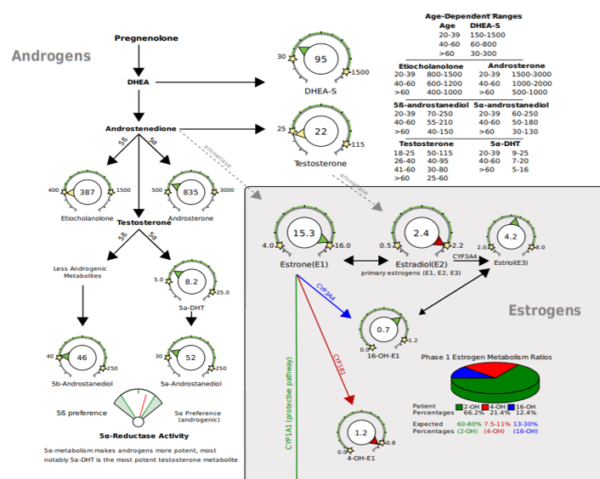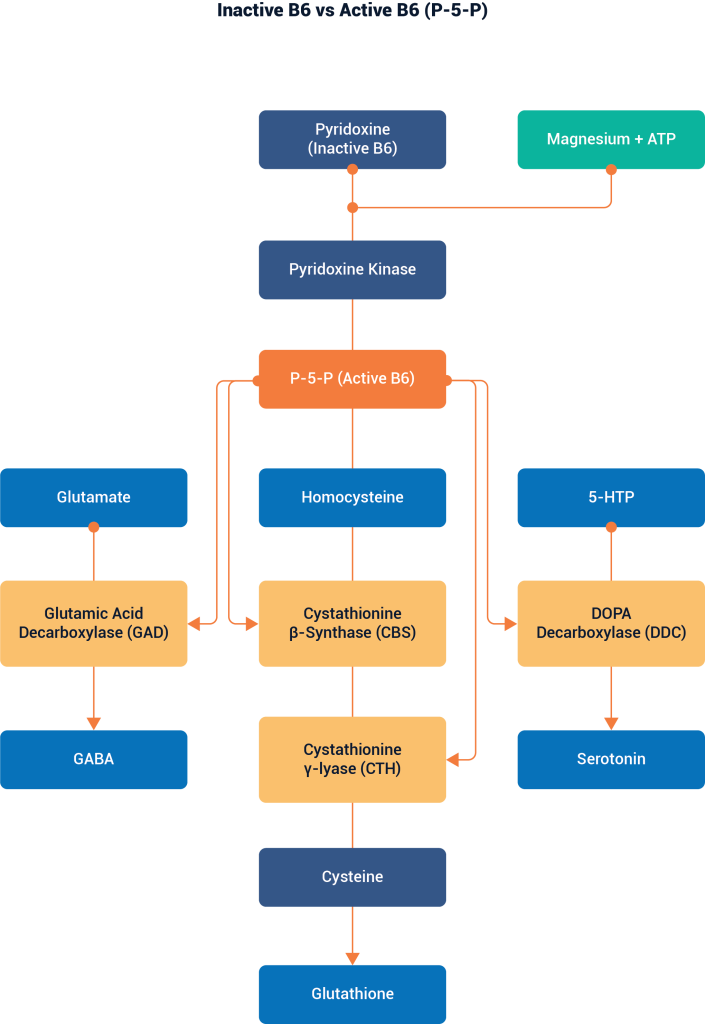| CLAIRE, 37
• Busy advertising manager with lots of international travel Issues wishing to address: • Inability to push hard in exercise sessions but could go steady all day Suggested Tests for a comprehensive Insight: Full Blood Screen + DUTCH Hormone Test + GI map Stool Test. |
| Tests Revealed
• Low Iron Stores (Ferritin) |
| Results derived
While busy maintaining her successful career, training religiously, managing family stress; Claire neglected her own health. She ate more processed food and drink than she realized, slept poorly, and prioritized exercise over relaxing. She spent 10 years “living on adrenaline”, fueled by caffeine, refined sugar and more alcohol than she wanted to admit. Based on functional lab testing, we did indeed learn Claire had reduced adrenal gland function – low cortisol, and low metabolized cortisol in the context of low DHEA, and progesterone. All inter-related and a result of unsupported lifestyle in the context of a very driven and perfectionist personality. An adaptation by the body to get her to slow down. But who has time to really slow down? – most don’t until they reach rock bottom – and are then forced to claw their way back up out of a longer, darker hole. Her gut test further revealed a Helicobacter pylori and Klebsiella infection (2 bacterial infections) common when stress has been present for some time lowering gut immunity. Conversations revealed Claire struggled to process emotional stress and felt that she had little control over her life – a sense of overwhelm – which becomes more obvious in individuals with low DHEA. The gut infections were creating yet another layer of stress – think – a system constantly battling to keep the bacteria from multiplying. We focused on lifestyle changes and treated her gut infection and provided a plan to strengthen the gut’s resilience. The Sex Hormone Imbalance often improves when the adrenals are better supported by nutritional, supplementary and lifestyle changes. But often in an athletic 30-40’s age group direct bio-similar hormone replacement is indicated – especially if there is pronounced sleep disturbance, irregular menstrual cycles, and mood swings. We try to boost the body’s own hormonal balance first – but for some – more direct measures are indicated and can have a huge relatively fast impact on how they feel and function. Claire embraced the challenge of reducing hormone disrupting and methylation reducing chemicals in her life: swapping out her personal care, household cleaning products, and plastics with natural safer alternatives. Every little bit helps. While following her protocol, Claire committed to taking time to prepare and eat balanced, nutritious meals with lots of healthy fats. To support Claire’s weak methylation, we increased her intake of leafy greens, beans, fruit, and whole grains to get adequate levels of vitamins B6, betaine, and folate. She included Egg yolks, meat, liver, and oily fish to support dietary sources of choline and vitamin B12. All important to support adrenals and the nervous system. She began to enjoy cooking whilst listening to her favorite books on audio, by getting her husband involved and always made extra to place in the freezer or to enjoy for lunch the next day. She and her husband arranged their schedules to take quality time out a few times a week to sauna, attend a local Pilates class or walk in nature. In addition, she made a point to be in bed by 10:00 P.M. to ensure she received adequate rest and recovery. Claire made her bedroom more conducive to sleep by adapting her bedroom using the Fibr Good Sleep Guidelines. Although making these lifestyle changes was difficult, she realized that she needed to let some chores slide and rearrange her priorities. Those decisions, followed by smart lifestyle choices day to day, along with follow-up consultations and testing, helped to renew her strength and resolve and put her back on track for a healthy life. 3 months on her personalised protocol involving an adapted exercise routine, targeted supplements, stress reduction exercises, overall toxin reduction and a diet high in good fats helped to normalise Claire’s monthly menstrual cycle and she was able to conceive after 4 months. |




